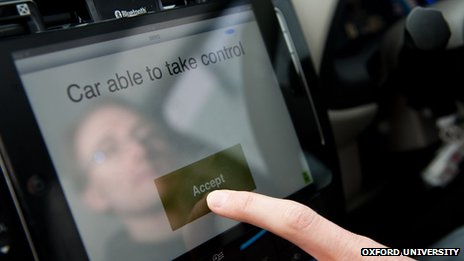A team at Oxford University, England, has revealed a new technology that can make a car automated by allowing it to drive itself on memorised routes. The tech coming out of England hopes to rival Google’s self-driving cars and encourage the technology to move forward.
Costing around £5,000 for the complete system to be added to a car, the kit isn’t cheap. However, the team behind it hopes that as technology evolves it can become as cheap as £100 in the future.
The technology works by using laser and small cameras to allow the car to effectively memorise routes, allowing it to then drive them again without the driver needing to touch anything. An iPad is built into the car’s dashboard to offer the driver the option to let the inbuilt computer to “take the wheel”.
As a safety mechanism the control of the car can be returned to the driver fully with a touch of the brake pedal, just as you can do with cruise control on most cars.
“It’s not depending on GPS, digging up the roads or anything like that – it’s just the vehicles knowing where they are because they recognise their surroundings” says Professor Paul Newman, who is from Oxford University’s department of engineering science.
Right now the car cannot be legally driven on UK roads, and so it’s currently being tested on a specially built industrial estate with real roads, buildings, markings and junctions.
Google is currently trying to get permission from the Californian government to test drive its self-driven cars on public roads, with 300,000 incident-less miles of automated driving up its sleeve to help with the claim.
But how does this technology differ from Google’s? Prof Newman explains;
“Well if you look at it, we don’t need a 3D laser spinning on the roof that’s really expensive – so that’s one thing straight away. I think our car has a lower profile.”
“Our approach is made possible because of advances in 3D laser mapping that enable an affordable car-based robotic system to rapidly build up a detailed picture of its surroundings.”
It’s certainly exciting to see some innovation in the automated vehicle sector over here in the UK to rival the might of Google in the US. Hopefully we’ll be seeing this type of technology advancing fast towards publically available automated cars.

